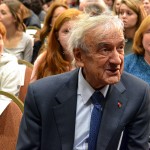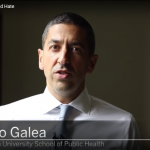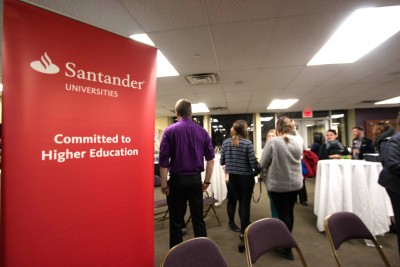
The first Santander-Boston University Urban Impact Program grant recipients gathered Wednesday and presented their projects’ initiatives with the BU community and Santander Bank representatives at the Howard Thurman Center for Common Ground.
The 11 recipient teams, each comprised of BU students, have received a total of $11,000 to improve the Boston area through civic projects. Approximately 25 members of Santander Bank and the BU community listened to each team’s planned initiative, which included educating middle school teachers about LGBT issues, creating software that allows the government to keep efficient records and empowering women of color through social media.
Santander representative James Dever said the bank collaborates with colleges and universities to focus on what students and staff think are important issues to address.
“With our philanthropic dollars, we sponsor programs that universities find are important and give money back to the student base,” Dever said during the meeting. “I’m a lifetime resident of Boston. This is a great city, but it needs initiatives, and [the grant recipients] are the perfect venue to help the city solve these problems.”
Several BU staff members informed students of the program and helped them with the application process, Community Service Center Director Zachary Hobbs said. The microgrant program will assist students in making a difference in the Boston community, Hobbs added before the gathering.
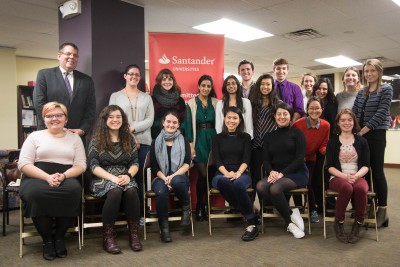
“Essentially, any group of BU students can support work beyond the BU campus and beyond the BU community,” Hobbs said. “BU students [are] doing projects with community organizations throughout Boston to address challenges and opportunities that our neighbors beyond campus are facing.”
During the meeting, Dean of Students Kenneth Elmore said BU students’ work is making a meaningful difference in the Boston community.
“For us to be innovative and move with time, … we need to look at the problems,” Elmore said. “Hopefully, we are finding long term solutions. We are working with and in a community, not for, not because of and not in spite of anyone.”
Grant recipients said the application process was fairly simple and that they are now working on various projects in the Boston area.
Alison Drew, a fifth-year doctoral candidate in the School of Social Work, was given the grant to continue the research of her doctoral dissertation. Drew said her project includes surveying youth mentors before and after a volunteer opportunity to find out what makes them continue volunteering.
“I had been looking for funding opportunities for my dissertation study, and [my advisor] suggested this might be a good fit,” Drew said. “I’m doing a study about youth mentoring and what helps keep volunteer mentors engaged with the program and the children [with whom] they are working.”
Jessica Hill, a second-year graduate student in the School of Medicine, said her group works to create an elementary school program that aims to assist children in understanding how to adapt and solve problems in different situations.
“A fixed mindset is where you believe intelligence is fixed, [and no matter] how hard you try, you won’t get any better,” Hill said. “A growth mindset is if I put effort and change my strategy, then I will improve. We are trying to help kids foster a growth mindset. If [children] encounter a difficult time in school or in life, [then they can ask,] ‘What can I do differently to find my way around it?’”
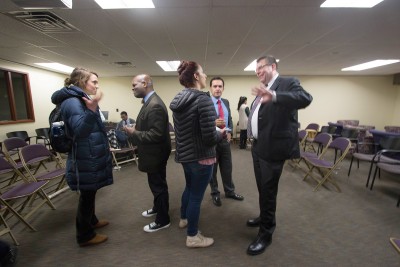
Several attendees said they were intrigued in what the various groups had been working on for their projects.
Shiney James, the director of orientation at BU, said the grants, which will fund the students throughout the semester, are helpful for students to become involved in various ways.
“[The program] is a great experience for young entrepreneurs and students as they go out into the real world,” James said. “Finding the money and implementing [their] idea is tough. This is a great building block in figuring out how to [receive funding] now, as they go out into the real world later.”
Rebekah Leopold, a senior in the College of Arts and Sciences, said she often visits HTC to find forums and gatherings, such as this one, that uplift the community.
“Whenever there is a meeting or an event [at the HTC], I try to get involved because they are usually pretty interesting,” Leopold said.
Lauren LeBlanc, a junior in the College of Communication, said she came to the meeting to support friends and found it interesting to hear about the work the different groups plan to do.
“My friends are doing the LGBTQ middle school training for educators,” LeBlanc said. “I’m looking forward to see all the work they will accomplish. I’m not a Boston resident, but the city would definitely benefit students working really hard to not only educate other college students, but also the next generation.”



